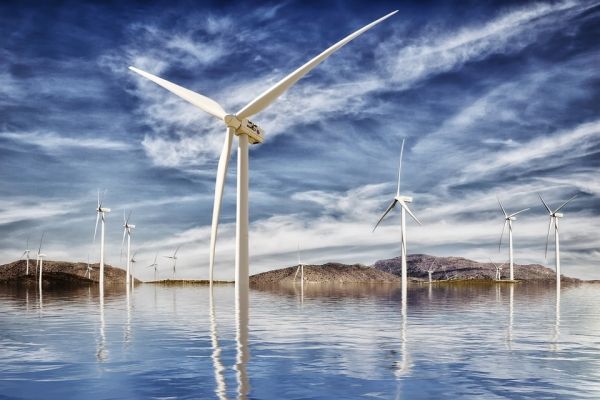What do pipes and anchors have to do with storing energy? More than you might think! A new IIASA-led study explored the potential of a lesser known, but promising sustainable energy storage system called Buoyancy Energy Storage.
There is general consensus that renewable energy sources will play an important role in ensuring a healthier and more sustainable future for the planet and its people, and many countries are indeed already seeing such technologies displacing “dirty” fossil fuels in the power sector in an effort to lower emissions. The biggest problem with renewable energy sources, however, is that power supply is intermittent, meaning that the energy output at any given time does not necessarily meet the demand at that time. With solar power generation for instance, electricity generation peaks during the day when electricity demand is low, resulting in times of energy excess alternating with times of energy shortage.
The balance between energy supply and demand is a prerequisite for any stable energy system. In the case of intermittent renewable energy supply, reliable and efficient ways to store energy will be crucial to ensure the successful adoption of these technologies. In their latest paper published in the journal Energy Storage, IIASA researcher Julian Hunt and colleagues explored one of the lesser known, but promising sustainable energy storage systems, namely Buoyancy Energy Storage Technology.
“Buoyancy Energy Storage Technology (BEST) can be particularly useful to store intermittent energy from offshore wind power plants, especially in coastal regions and small islands. As an added benefit, the same technology can be used to compress hydrogen and transport it underwater,” Hunt explains.
Read more at International Institute for Applied Systems Analysis
Photo Credit: ELG21 via Pixabay


